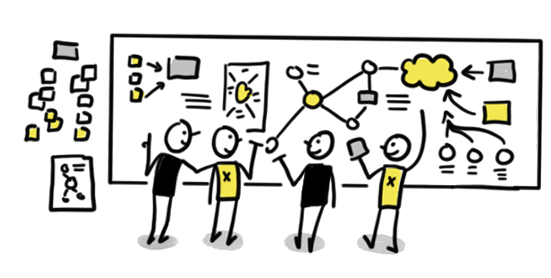Last week I participated in an Improv Level 1 class, and aside from having a great time and earning a healthy respect for how difficult improv is, I came away with five key ideas to improve client relationships.
The concept of “Yes, and…” is rule number one in improv.
I have found that using this in conversations helps them run smoothly. The idea that you are not blocking what a person is saying, but rather building on it, makes a conversation feel more like collaboration.
Pick up the phone!
Understanding that subtlety is lost, not only on the stage, but also in phone calls, can ensure that miscommunications are avoided. If you don’t leave room for someone to misinterpret you, you can avoid frustration and probably some embarrassment. Identify if a communication has the potential to be misinterpreted; if so, pick up the phone. This allows you to be direct and clear as well as the freedom to react to the conversation, you know, like an improv performance.
Eye contact! Of course when face-to-face with someone this makes sense, but how does this translate to conference calls–the way most of us communicate with clients and remote teams?
- When you are in a conference room with your fellow co-workers, eye contact helps ensure you are all in agreement and moving through the conversation together.
- While there is an ever-present ability to incorporate video into conference calls and instant messaging applications, there are times when eye contact just isn’t an option. Be direct and obvious about whom you are speaking to. Use their names to verbally point the conversation to them.
Have an opinion.
This one is a bit of a stretch, so bear with me. In improv the idea is that nothing is planned, right? But, that doesn’t mean you can’t enter a scene with a strong emotion, an opinion, or a character pre-determined. Imagine you are preparing for a call with a client, and you really aren’t sure what to expect. What do you do?
- Understand your own goal for the outcome of the call. If you have a clear goal for the outcome of the call, you can use it to guide your conversation while allowing your tone to reflect the relationship you have with your client.
- Come into the call knowing your relationship to the client. For example, are you the expert or are you still gathering information?
Lastly, remember that your client is your partner.
- Always support your partner.
- No idea is a bad idea.
- Don’t block people and their ideas, but work the scene so that everyone wins!
